Bolivia: A Tapestry of Culture, Nature, and History
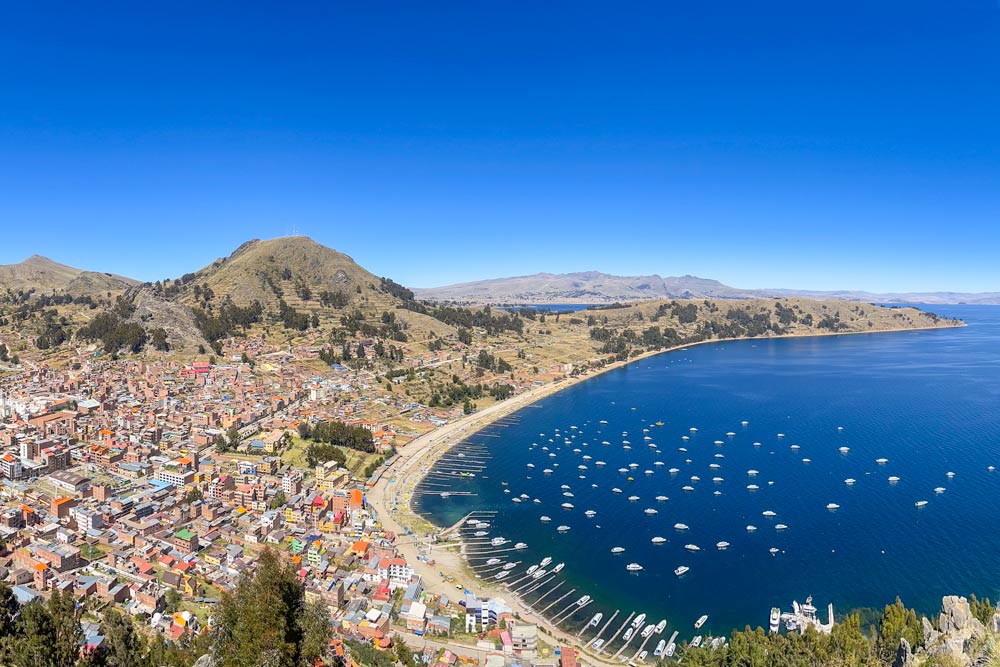 Nestled in the heart of South America, Bolivia stands as a testament to the rich tapestry of culture, nature, and history that characterizes the region. From the towering peaks of the Andes to the dense Amazon rainforest, Bolivia's diverse landscapes are matched only by its vibrant indigenous cultures and storied past. In this article, we delve into the multifaceted allure of Bolivia, exploring its breathtaking scenery, its fascinating history, and the enduring traditions that shape its identity.
Nestled in the heart of South America, Bolivia stands as a testament to the rich tapestry of culture, nature, and history that characterizes the region. From the towering peaks of the Andes to the dense Amazon rainforest, Bolivia's diverse landscapes are matched only by its vibrant indigenous cultures and storied past. In this article, we delve into the multifaceted allure of Bolivia, exploring its breathtaking scenery, its fascinating history, and the enduring traditions that shape its identity.
A Land of Contrasts
Bolivia's geography is as diverse as it is spectacular. At its center lies the Altiplano, a vast plateau flanked by the towering peaks of the Andes Mountains. Here, the air is thin, and the landscape is dotted with shimmering lakes, among which Lake Titicaca reigns supreme as the highest navigable lake in the world. This sacred body of water is steeped in mythology and serves as a focal point for indigenous Andean cultures.
To the east, the terrain descends into the dense expanse of the Amazon rainforest, teeming with biodiversity. This region is home to countless species of flora and fauna, many of which are found nowhere else on Earth. The juxtaposition of these contrasting landscapes within Bolivia's borders offers visitors a truly immersive experience, whether trekking through the rugged Andean peaks or navigating the winding rivers of the Amazon.
Echoes of the Past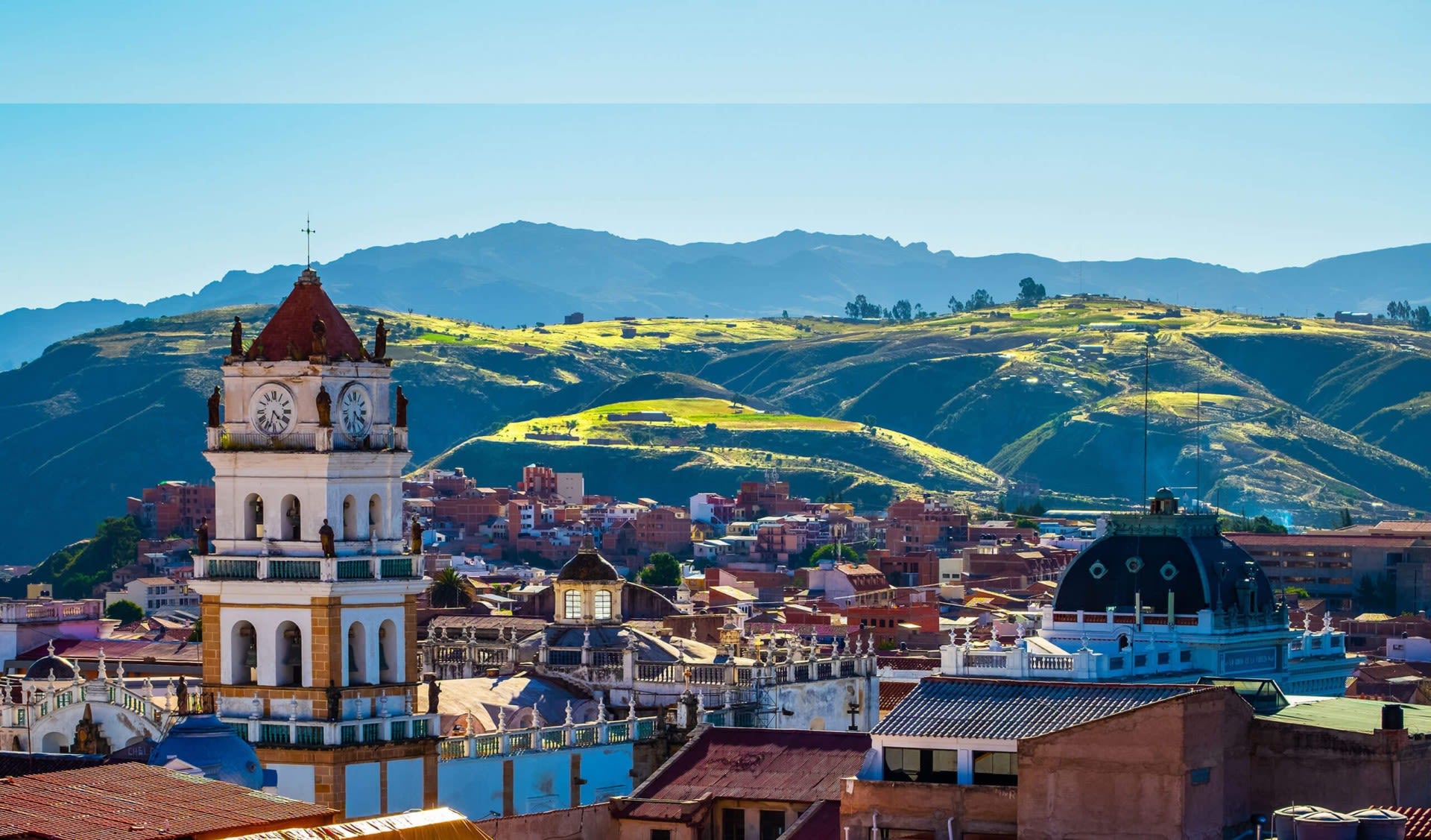
Bolivia's history is a tapestry woven with threads of ancient civilizations, colonial conquest, and revolutionary struggle. Long before the arrival of the Spanish conquistadors, the land that is now Bolivia was inhabited by advanced indigenous cultures, such as the Tiwanaku and the Inca. These civilizations left behind impressive archaeological sites, including the enigmatic ruins of Tiwanaku, which continue to intrigue historians and archaeologists to this day.
The Spanish conquest in the 16th century ushered in a new era of colonial rule, during which Bolivia's wealth in silver became legendary. Cities such as Potosí grew wealthy on the backs of indigenous laborers toiling in the mines, while the colonial elite reveled in luxury. Today, the colonial legacy is evident in Bolivia's architecture, particularly in cities like Sucre and La Paz, where grand cathedrals and palaces stand as a reminder of this tumultuous period.
The 19th century saw Bolivia swept up in the tide of revolution that engulfed much of South America. It gained independence from Spain in 1825, led by figures such as Simón Bolívar and Antonio José de Sucre, after whom the country is named. However, independence did not bring stability, and Bolivia experienced decades of political upheaval and territorial losses.
Cultural Mosaic
One of Bolivia's most enduring treasures is its rich tapestry of indigenous cultures, which continue to thrive despite centuries of adversity. The country is home to dozens of indigenous groups, each with its own language, traditions, and customs. From the Aymara of the Altiplano to the Quechua of the Andes and the Guarani of the lowlands, Bolivia's indigenous heritage is woven into the fabric of daily life.
This cultural diversity is perhaps most evident in Bolivia's festivals and celebrations, which blend indigenous rituals with Catholic traditions brought by the Spanish. During festivals such as Carnival in Oruro or the Feast of the Virgin of Copacabana, colorful processions, music, and dance bring communities together in joyous celebration, offering visitors a glimpse into Bolivia's vibrant cultural tapestry.
Preserving Natural Heritage
In recent years, Bolivia has emerged as a global leader in environmental conservation, recognizing the importance of preserving its natural heritage for future generations. The country boasts an extensive system of national parks and protected areas, which encompass a wide range of ecosystems, from the high Andean páramo to the lush cloud forests of the Yungas.
One of Bolivia's most iconic natural wonders is the Salar de Uyuni, the world's largest salt flat. Stretching over 10,000 square kilometers, this otherworldly landscape is a photographer's paradise, especially during the rainy season when a thin layer of water transforms the salt flat into a giant mirror, reflecting the sky above.
Challenges and Opportunities
Despite its many attractions, Bolivia faces a host of challenges, including poverty, inequality, and environmental degradation. The country ranks among the poorest in South America, with many indigenous communities disproportionately affected by economic hardship and social marginalization.
However, Bolivia also possesses immense potential for sustainable development, particularly in the fields of ecotourism and renewable energy. With its abundant natural resources and growing tourism industry, Bolivia has the opportunity to chart a course towards a more prosperous and equitable future, one that honors its rich cultural heritage and protects its awe-inspiring natural landscapes.
Bolivia's allure lies in its remarkable diversity, both natural and cultural. From the snow-capped peaks of the Andes to the steamy jungles of the Amazon, from ancient archaeological sites to vibrant indigenous communities, Bolivia offers visitors a journey through time and space unlike any other. As the country confronts the challenges of the 21st century, it does so with a resilience born of centuries of struggle and a determination to forge a brighter future for all who call this land home.
Sustainable Development Initiatives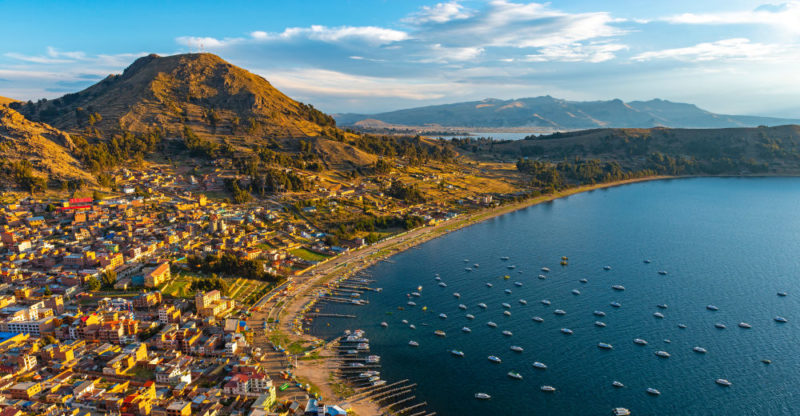
In recent years, Bolivia has made significant strides in promoting sustainable development initiatives aimed at addressing environmental and social challenges while fostering economic growth. One notable example is the country's emphasis on renewable energy sources, particularly hydroelectric and solar power.
Bolivia's vast hydropower potential, stemming from its numerous rivers and high-altitude lakes, presents a valuable opportunity to transition away from fossil fuels and towards clean, renewable energy. Projects such as the San José Hydroelectric Plant on the Rio Grande and the Misicuni Dam near Cochabamba demonstrate the government's commitment to harnessing hydropower to meet the nation's energy needs while reducing carbon emissions.
Additionally, Bolivia boasts abundant sunshine year-round, making it well-suited for solar energy production. The country's ambitious solar energy initiatives, including the Villena Solar Plant in Potosí and the Uyuni Solar Plant near the iconic salt flats, further underscore Bolivia's commitment to sustainable development and reducing its carbon footprint.
Indigenous Rights and Social Inclusion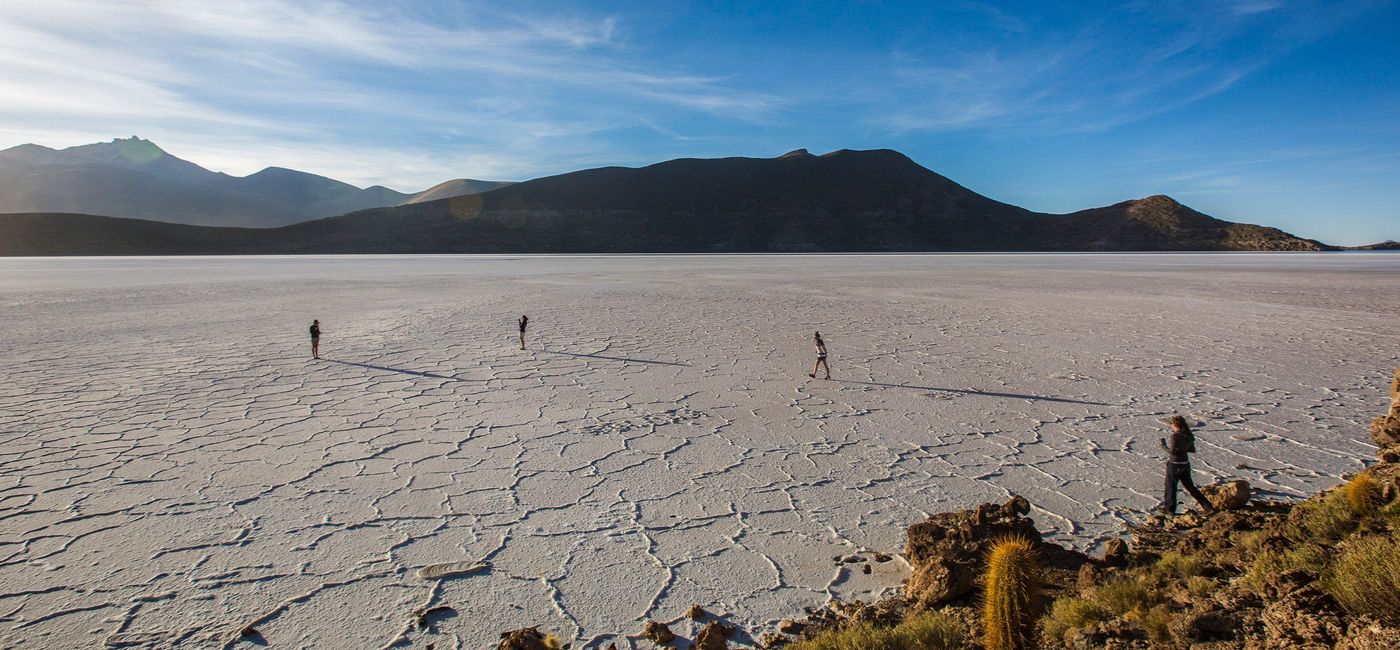
Recognizing the importance of preserving indigenous cultures and promoting social inclusion, Bolivia has implemented various policies aimed at empowering indigenous communities and protecting their rights. The country's 2009 Constitution, often hailed as one of the most progressive in the world, enshrines the rights of indigenous peoples and recognizes Bolivia as a plurinational state.
Under the leadership of President Evo Morales, himself of indigenous Aymara descent, Bolivia has taken significant steps to address historical injustices and promote indigenous representation in government and society. Initiatives such as the Indigenous Community-Based Land Titling Program and the creation of the Plurinational Legislative Assembly have empowered indigenous communities to assert their rights and participate in decision-making processes at the national level.
Furthermore, Bolivia's commitment to promoting indigenous languages and cultural practices is evident in its education system, which offers bilingual intercultural education in many regions of the country. By embracing and celebrating its indigenous heritage, Bolivia seeks to build a more inclusive society where all citizens can participate fully in the nation's social, economic, and political life.
Tourism as a Driver of Sustainable Development
Tourism plays a crucial role in Bolivia's efforts to promote sustainable development while preserving its natural and cultural heritage. The country's diverse landscapes, rich history, and vibrant indigenous cultures attract visitors from around the world, providing economic opportunities for local communities and contributing to the conservation of natural resources.
Bolivia's ecotourism offerings, including guided treks through the Andes, wildlife tours in the Amazon rainforest, and visits to indigenous communities, provide travelers with unique experiences while promoting environmental conservation and cultural exchange. Community-based tourism initiatives, such as homestays and artisanal workshops, allow visitors to engage directly with local communities, fostering mutual understanding and respect.
Moreover, Bolivia's commitment to sustainable tourism is reflected in initiatives aimed at minimizing the environmental impact of travel, such as eco-friendly accommodations, waste management programs, and responsible wildlife viewing practices. By embracing tourism as a tool for sustainable development, Bolivia seeks to harness the economic benefits of travel while safeguarding its natural and cultural treasures for future generations to enjoy.
Conclusion: Embracing a Sustainable Future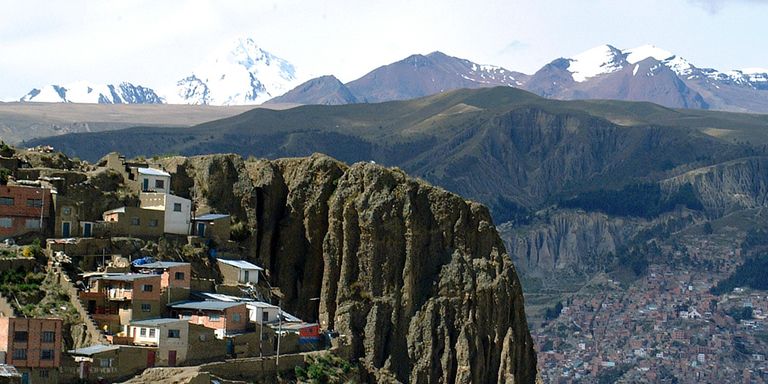
In conclusion, Bolivia stands at a crossroads, poised to embrace a sustainable future built on principles of environmental stewardship, social inclusion, and cultural preservation. As the country confronts the challenges of the 21st century, including poverty, inequality, and climate change, it does so with a renewed sense of purpose and determination.
By harnessing the potential of renewable energy, promoting indigenous rights and social inclusion, and embracing tourism as a driver of sustainable development, Bolivia seeks to chart a course towards a more prosperous, equitable, and environmentally sustainable future. As the world looks to address pressing global challenges, Bolivia's example serves as a beacon of hope and inspiration, demonstrating that a better, more sustainable future is within reach if we work together with vision, courage, and determination.



















![[FAILED] Engage2Earn: McEwen boost for Rob Mitchell](https://cdn.bulbapp.io/frontend/images/c798d46f-d3b8-4a66-bf48-7e1ef50b4338/1)

